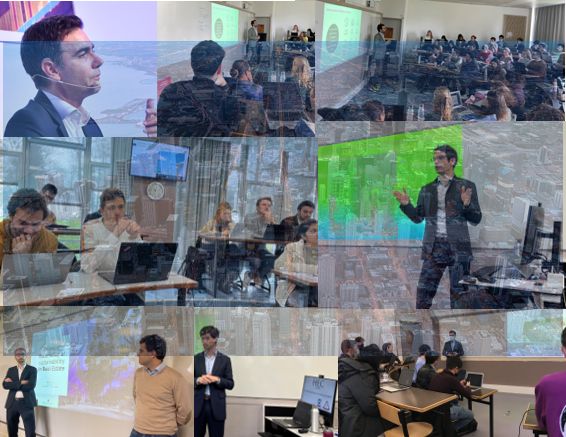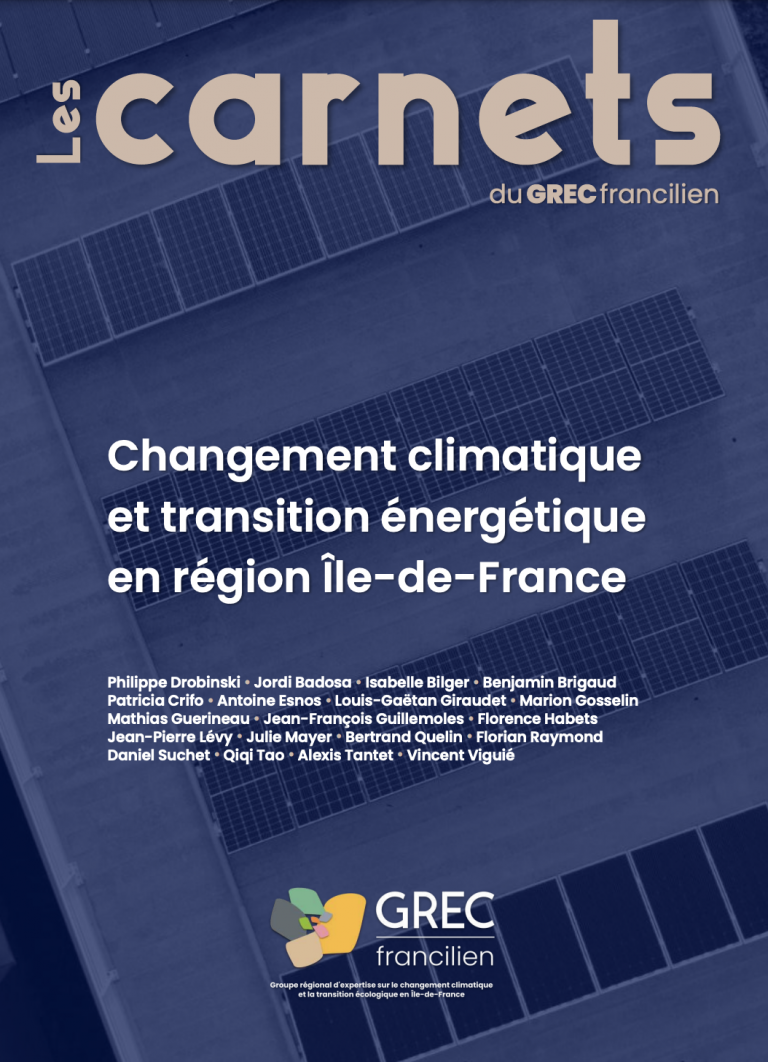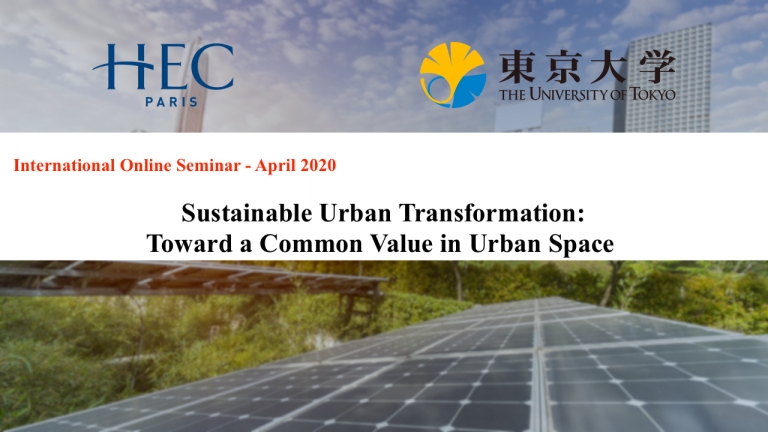News
The Conversation France: République démocratique du Congo: la qualité des centres de santé n’est pas qu’une question de financement
May 22, 2023

Les statistiques sont claires : dans seulement sept ans, la plupart des pays africains seront confrontés à une lutte gargantuesque pour atteindre les objectifs de développement durable (ODD) des Nations unies. En conséquence, plus de 500 millions d’Africains pourraient vivre dans l’extrême pauvreté d’ici 2030 – dont au moins 70 % pourraient encore l’être en 2050. Pourtant, chaque année, des milliards et des milliards de dollars sont investis dans les pays en développement à faible revenu. Cependant, l’amélioration et l’avancée en termes d’impact restent assez limitées. Comment expliquer un impact aussi incomplet ?
Dans un récent travail de recherche, nous avons étudié les pratiques mises en œuvre dans 1000 centres de santé en République démocratique du Congo (RDC) et comment ces pratiques peuvent leur permettre de bénéficier effectivement des fonds qu’ils reçoivent. L’un des principaux enseignements est que le financement est complémentaire à la bonne gouvernance. en savoir plus ici
Elective Master Course: Sustainable Urban Transformation
February 15, 2023

Today, it was the last class of my elective course given at HEC Paris. My students from both the MSc SASI and MSc in Strategy, we welcome seven keynote speakers belonging to six companies. All of them have shared their view and discussed their approach about the next steps for resilient and inclusive cities, the sprawl, development and transformation of urban areas, and how to improve the sustainability of cities.
Many thanks to all for their contribution, and all students for their interest in finding solutions to these great challenges
Paper Accepted for Publication at Management Science
February 03, 2023

In collaboration with Anicet Fangwa, Caroline Flammer, and Marieke Huysentruyt, Bertrand Quelin has a paper recently accepted for publication at Management Science. This paper is titled: “Corporate Governance and Social Impact of Non-Profits: Evidence from a Randomized Program in Healthcare in the Democratic Republic of Congo”
This study examines the effectiveness of a bundle of governance mechanisms–consisting of social performance-based incentives combined with auditing and feedback–in the context of a randomized governance program conducted in the Democratic Republic of Congo’s healthcare sector. Within the program, a set of health centers were randomly assigned to a governance treatment while others were not. We find that the governance treatment leads to i) higher operating efficiency and ii) improvements in health outcomes (measured by a reduction in stillbirths and neonatal deaths). Furthermore, we find that funding is not a substitute for governance–health centers that only receive funding increase their scale, but do not show improvements in operating efficiency nor health outcomes. Overall, our results suggest that governance plays an important role in achieving the non-profits’ objectives and increasing the social impact of the funds invested.
Paper Accepted for Publication at Management Science
February 03, 2023

In collaboration with Anicet Fangwa, Caroline Flammer, and Marieke Huysentruyt, Bertrand Quelin has a paper recently accepted for publication at Management Science. This paper is titled: “Corporate Governance and Social Impact of Non-Profits: Evidence from a Randomized Program in Healthcare in the Democratic Republic of Congo”
This study examines the effectiveness of a bundle of governance mechanisms–consisting of social performance-based incentives combined with auditing and feedback–in the context of a randomized governance program conducted in the Democratic Republic of Congo’s healthcare sector. Within the program, a set of health centers were randomly assigned to a governance treatment while others were not. We find that the governance treatment leads to i) higher operating efficiency and ii) improvements in health outcomes (measured by a reduction in stillbirths and neonatal deaths). Furthermore, we find that funding is not a substitute for governance–health centers that only receive funding increase their scale, but do not show improvements in operating efficiency nor health outcomes. Overall, our results suggest that governance plays an important role in achieving the non-profits’ objectives and increasing the social impact of the funds invested.
Changement Climatique et Transition Énergétique en Région Île-de-France
NOVEMBER 28, 2022

Alors même que les engagements pris par les États sur les questions climatiques peinent à se concrétiser, les villes et les communes, à l’international comme au niveau local, ont compris le rôle central qu’elles auront à jouer dans la transition énergétique et le levier que cette dernière peut représenter en termes de création d’emplois. D’ailleurs, la loi relative à la transition énergétique pour la croissance verte a renforcé le rôle des territoires. Pour la région Île-de-France, les enjeux de la transition énergétique sont importants.
Regroupant 20% de la population française sur 2% du territoire métropolitain, la région, dont la consommation énergétique repose à 67% sur les énergies fossiles, ne produit localement que 10% de son approvisionnement énergétique (7.4% sources renouvelables et récupération d’énergie). Représentant 10% des émissions de gaz à effet de serre nationales, la région Île-de-France doit résoudre l’équation énergétique sous des contraintes importantes comme sa forte densité, sa dépendance énergétique, sa vulnérabilité au changement climatique.
En savoir plus ici.
Podcast broadcast: Creating Social Value Through Hybridization
September 1, 2022

Bertrand Quélin has been spearheading research on ways public bodies and private companies partner up to create both social and economic value. In this episode of the Knowledge@HEC podcast, he discussed how the partnerships rely on a form of hybridization relying on three mechanisms: contractual, institutional and the ability to regularly partner up with public authorities. You can listen to this podcast here.
HEC Climate Days: Accelerating the Sustainable Transformation
May 30, 2022

Tackling climate change and decarbonizing supply chains creates major challenges for businesses and policy makers. The objective of the HEC Climate Days is to show how new thinking can be used to get traction on creative solutions that improve the bottom line for organizations, society, and the planet. As part of the program, there is a research workshop with six academic presentations: Sam Aflaki, Professor of Operations Management at HEC Paris; Patricia Crifo, Professor at École Polytechnique and CNRS Researcher; Augustin Landier, Professor of Finance at HEC Paris; Luc Paugam, Associate Professor of Accounting at HEC Paris; Bertrand Quélin, Professor of Strategy at HEC Paris; and Armin Steinbach, Professor of Law at HEC Paris. Moderator: Daniel Halbheer, Associate Professor of Marketing at HEC Paris and Academic Director of the Climate & Earth Center.
Professor Quelin will present how cities can contribute to the sustainable transformation.
International Online Seminar on Sustainable Urban Transformation: Toward a Common Value in Urban Space
April 29, 2022

Organized by Akito Murayama, Associate Professor, Department of Urban Engineering/Misui Fudosan UTokyo Laboratory, The University of Tokyo, Japan and Bertrand Quélin, Professor of Strategic Management/Bouygues Chair “Smart City and the Common Good”, HEC Paris, this seminar aimed to promote international communication on the topic of sustainable urban transformation. Both HEC Paris and the University of Tokyo are conducting collaborative research on the topic with private urban developers and share interest in exchanging the experience in research, education, and practice. The seminar was moderated by Mrs Cristel Peridon – Minister Counsellor for Economic Affairs – French Embassy – Tokyo (Japan) and it included presentations from researchers, practitioners, and students.
Professor Quélin’s interview with Maeil Business Newspaper
April 28, 2022

Professor Quelin had an interview about smart cities with Maeil Business Newspaper, a South-Korean economic newspaper. In this interview, he explained why smart cities are needed by highlighting the ‘real’ reasons. The reasons include solving climate change problems and improving the quality of life for people. Professor Quelin also pointed out that if a city project does not facilitate people’s everyday life, the project is likely to fail. You can read the full interview here.
Sustainable Urban Transformation: From Eco-Districts To Smart Cities
April 14, 2022

According to current estimates of the world’s population, in the first decade of the 21st century, the number of people living in urban areas exceeded the number of people living in rural areas for the first time. Current global population growth projections indicate that most of the population expansion in the rest of the century will take place in urban areas of the developing world. In this conference, Professor Quelin examines the social, economic, and environmental dimensions of sustainable transformation in urban areas, with a focus on eco‐districts and smart and sustainable cities. Some of the major themes explore governance, ecosystems and social value. Some others include urban demographic trends, poverty and inclusion, green building, sustainable energy and transportation, water use, waste management, indicators of sustainability, and global climate change.
Professor Quélin on New eBook on SMART Cities
JANUARY 18, 2022

Just days after the conclusion of the Smart City Expo World Congress (SCEWC) in Barcelona, HEC Paris Bouygues Professor Bertrand Quélin and SASI Master’s graduate Isaac Smadja publish a key study of six award-winning smart cities across the globe. The 238-page eBook is the result of a partnership between Bouygues and HEC in the context of the school’s Smart City & the Common Good Chair. We exchange informally with Professor Quélin about the advantages of, and challenges to, tomorrow’s cities. You can find interview here.
Veolia’s Eau du Grand Lyon: Orchestrating a Social Ecosystem in a Community Around Water Distribution
OCTOBER 4, 2021

Veolia’s Eau du Grand Lyon case, written by HEC Paris Professor Bertrand V. Quélin, Bouygues Chair Professor in Smart City and the Common Good, and Anicet Fangwa, HEC Paris Ph.D. candidate, has just been released on the Case Centre platform. This case study explores how a company might reconcile profit motives with the greater needs of a community’s inhabitants.